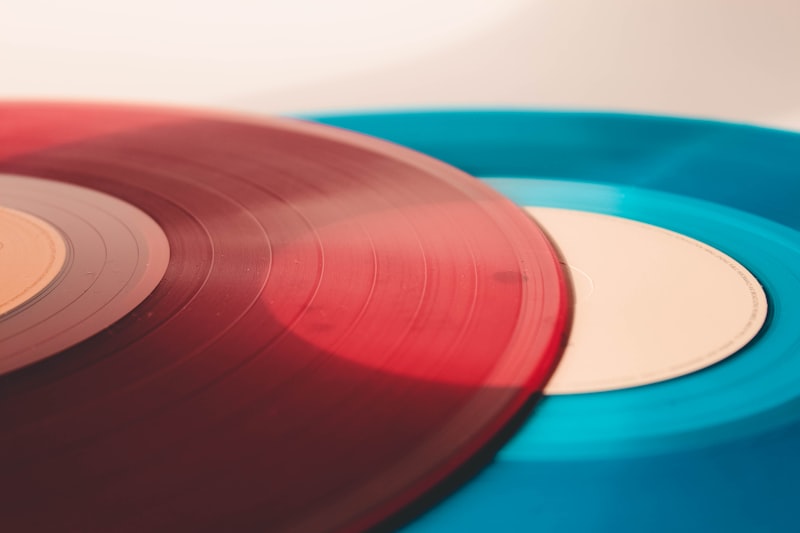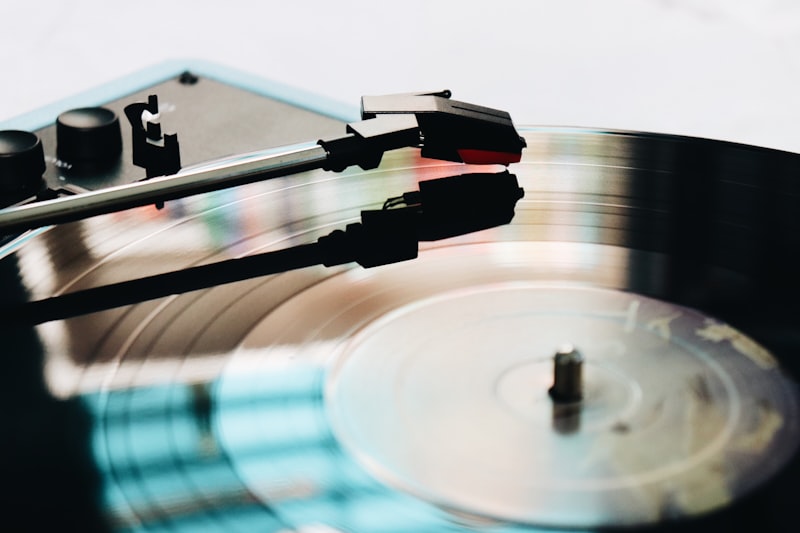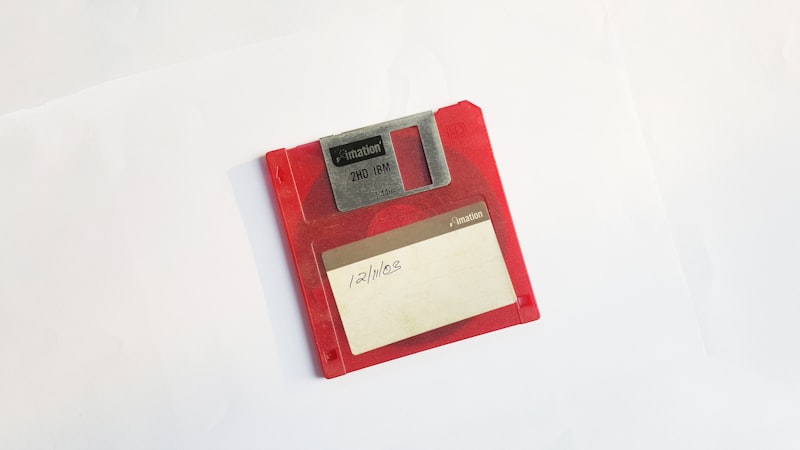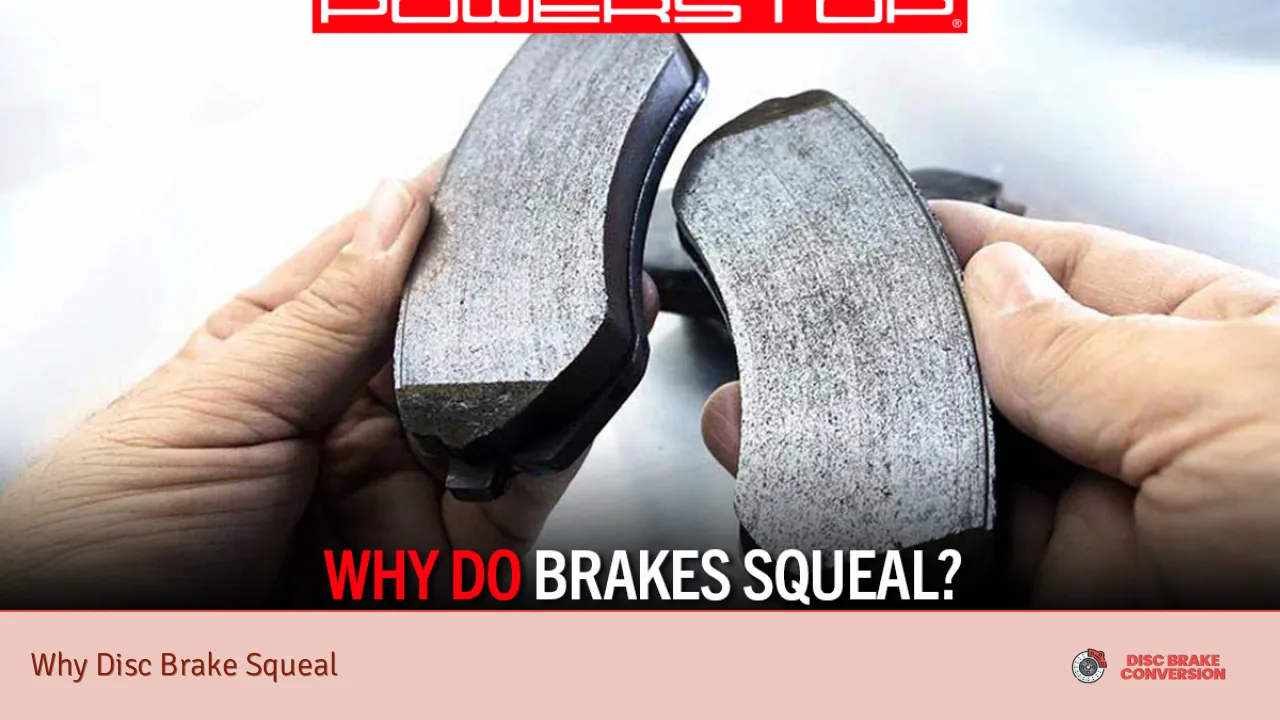Have you ever experienced that unpleasant screeching sound when you apply the brakes on your car? It’s called disc brake squeal, and it can be quite annoying. But what causes this noise? Let’s delve into the reasons behind this common issue.

One of the primary culprits behind disc brake squeal is vibration. When you press the brake pedal, the brake pads come into contact with the spinning rotor, generating friction to slow down the vehicle. However, under certain conditions, vibrations can occur, leading to the dreaded squealing noise. These vibrations can be caused by various factors, such as uneven wear on the brake pads, warped rotors, or insufficient lubrication.
Another factor contributing to brake squeal is the composition of the brake pads themselves. Brake pads are typically made of a combination of materials, including metal fibers and resin. While this composition provides excellent stopping power and durability, it can also be prone to squealing. The interaction between the brake pad material and the rotor surface, especially when they are new or during wet conditions, can result in squealing noises.
Environmental factors can also play a role in disc brake squeal. For instance, if you live in an area with high humidity or frequent rain, moisture can accumulate on the rotor’s surface. When you engage the brakes, the pads may momentarily lose their grip on the wet rotor, causing them to vibrate and produce that irritating sound.
Fortunately, there are ways to address disc brake squeal. Regular maintenance and inspection of your braking system can help identify and resolve potential issues. Ensuring proper lubrication of the brake components, using high-quality brake pads specifically designed to reduce noise, and having the rotors resurfaced or replaced when necessary can all contribute to a quieter braking experience.
Disc brake squeal is a common annoyance faced by many drivers. Vibrations, brake pad composition, and environmental factors are the key contributors to this issue. Nevertheless, by taking proactive measures to maintain and address any underlying problems with your braking system, you can minimize or eliminate those unwanted squealing noises, ensuring a smoother and quieter ride. So, next time you hear that unpleasant screech, remember that there are solutions available to restore peace to your braking experience.
Unveiling the Mystery: Investigating the Causes Behind Disc Brake Squeal
Have you ever experienced that annoying high-pitched squeal when you hit the brakes? It’s like nails on a chalkboard, piercing through the silence and causing a cringe-worthy sensation. But what exactly causes this mysterious disc brake squeal? Let’s dive into the depths of this conundrum and unravel the secrets behind it.
One major culprit behind disc brake squeal is vibration. When you press the brake pedal, the brake pads clamp onto the spinning rotor, generating friction to slow down your vehicle. However, under certain conditions, this process can create vibrations that set off the infamous squealing sound. These vibrations occur due to various factors, such as uneven brake pad wear, improper pad installation, or even contaminated brake rotors.
Another factor contributing to the squeal symphony is inadequate brake pad materials. Brake pads consist of a combination of metal fibers and other compounds designed to provide optimal stopping power. However, if the pad material lacks the necessary resilience or is of poor quality, it can result in excessive noise during braking. Imagine trying to play a violin with worn-out strings – it wouldn’t produce a harmonious melody!
Furthermore, environmental factors can also play a role in the disc brake squeal saga. Moisture, dust, and debris can find their way between the brake pads and rotor, creating a squeaking orchestra in your wheels. Additionally, extreme temperatures can impact the brake system, causing the components to expand and contract, leading to potential noise issues.
Now that we’ve shed light on the possible causes of disc brake squeal, let’s address the burning question: how can you prevent it? Regular maintenance is key. Ensure that your brake pads are installed correctly, and replace them when they wear down. Choose high-quality brake pads that are specifically designed for your vehicle. Be mindful of your driving habits as well – sudden and aggressive braking increases the likelihood of squealing.
Disc brake squeal can be an irritating mystery to unravel. Vibration, inadequate brake pad materials, and environmental factors all play a part in this auditory annoyance. By understanding the causes, you can take proactive steps to minimize the chances of your brakes breaking into a squealing solo. So, next time you hear that unwelcome sound, remember, knowledge is power, and now you hold the key to solving the mystery behind disc brake squeal!
The Science of Noise: Understanding the Acoustics of Disc Brake Squeal
Have you ever wondered why your car’s brakes sometimes emit that annoying high-pitched squeal? It’s not just a random occurrence but rather a result of a fascinating scientific phenomenon known as disc brake squeal. In this article, we delve into the acoustics of disc brake squeal to shed light on what causes it and how it can be addressed.

Disc brake squeal is a common problem faced by many vehicle owners. When you apply the brakes, the brake pads press against the brake disc (also called a rotor), generating friction that slows down or stops the vehicle. However, under certain conditions, this friction can lead to vibrations in the brake system, which manifest as an audible squeal.

The primary cause of brake squeal lies in the interaction between the brake pads and the brake disc. When the brake pad comes into contact with the disc, tiny vibrations are created due to imperfections and irregularities on their surfaces. These vibrations then propagate through the surrounding components, including the caliper and suspension, eventually reaching the vehicle’s body structure, where they are radiated as sound waves.
To address disc brake squeal, engineers and scientists have adopted various approaches. One common method involves modifying the brake pad material to reduce vibrations and dampen noise. By using materials with better damping properties, such as those containing rubber or composite additives, the ability to absorb vibrations increases, thereby minimizing the likelihood of squeal.
Another approach focuses on improving the design of the brake system itself. This includes optimizing the shape and thickness of the brake pad, altering the disc’s surface texture, and enhancing the geometry of the caliper and suspension components. These design modifications aim to alter the natural frequencies of the system, reducing the chances of vibration and subsequent noise generation.
Furthermore, advancements in technology have allowed the introduction of electronic systems like anti-lock braking systems (ABS) and electronic stability control (ESC), which not only enhance vehicle safety but also help mitigate disc brake squeal. These systems monitor the behavior of the brake system and make real-time adjustments to prevent or minimize vibrations that could lead to noise.
Understanding the acoustics of disc brake squeal reveals the complex interplay between various components in a vehicle’s brake system. By exploring different materials, designs, and technological solutions, engineers are continuously working to reduce or eliminate brake squeal. So, the next time you hear your brakes squealing, remember that there is science behind the noise and ongoing efforts to make your driving experience quieter and more comfortable.
Squeaky Wheels: How Disc Brake Squeal Impacts Driving Comfort and Safety
Have you ever experienced that annoying high-pitched squeal coming from your car’s brakes when you press them? It’s as if the wheels are crying out for some attention. Well, that squeal is more than just an auditory nuisance. It’s a signal that something might be amiss with your disc brakes, and it can have significant implications for both your driving comfort and safety.
Disc brake squeal occurs when the brake pads make contact with the brake rotors. The resulting friction produces vibrations that manifest as that familiar screeching sound. While the noise itself may not seem like a big issue, it can be indicative of potential problems within the braking system.
One of the primary concerns with disc brake squeal is its impact on driving comfort. Imagine cruising down the road, enjoying a peaceful ride, only to be startled by a piercing noise every time you hit the brakes. It can be incredibly jarring and disrupt the tranquility of your drive. The constant squealing can cause stress and annoyance, making your journey far less enjoyable than it should be.
Beyond the discomfort it creates, disc brake squeal can also affect your safety on the road. The noise can be distracting, diverting your attention away from the task at hand: driving. When your focus is compromised, the risk of accidents increases. Additionally, the sound of squealing brakes can alert pedestrians and other drivers of your presence, serving as a crucial auditory signal. If your brakes are silent due to worn-out pads or other issues, the absence of that warning can create hazardous situations.
Addressing disc brake squeal promptly is essential for maintaining optimal driving comfort and safety. Regular maintenance and inspection of your braking system can help identify potential causes of the noise, such as worn brake pads, loose hardware, or insufficient lubrication. By addressing these underlying issues, you can eliminate or minimize the squeal, ensuring a smoother and quieter ride.
Breaking Down the Factors: What Triggers Disc Brake Squeal in Different Conditions?
Have you ever experienced that dreaded screeching sound when applying your car’s brakes? It’s not only irritating but can also make you concerned about the safety of your vehicle. That annoying noise is known as disc brake squeal, and it can occur under various conditions. Let’s delve into the factors that trigger this unpleasant sound and explore why it happens in different situations.
One of the primary culprits behind disc brake squeal is vibration. When you step on the brake pedal, the brake pads exert pressure on the rotating disc or rotor, which slows down the wheel’s motion. However, this process can sometimes lead to vibrations between the pads and the rotor. These vibrations set off a high-pitched squeal, leaving you cringing every time you need to stop.
Several factors contribute to brake pad vibration. One crucial aspect is the composition of the brake pads themselves. Different materials have varying levels of friction and resonance characteristics, affecting how they interact with the rotor. Additionally, factors such as pad design, surface irregularities on the rotor, and improper installation can exacerbate the vibration issue.
Another significant factor that triggers brake squeal is environmental conditions. Weather plays a crucial role in how your brakes perform. For instance, during rainy or humid conditions, the presence of moisture on the rotor can create a thin film, reducing friction between the pads and the rotor. This reduced friction can amplify vibrations and intensify the squeal.
Furthermore, temperature variations can affect brake performance. In extreme heat, the brake system components can expand, altering their shape and causing misalignment. This misalignment can result in uneven contact between the pads and the rotor, leading to squealing noises.
Road conditions can also impact brake squeal. Rough or uneven surfaces can cause more pronounced vibrations, making the squeal more noticeable. Similarly, if your vehicle frequently encounters dusty or dirty roads, particulate matter can accumulate on the brake pads and rotor, affecting their performance and contributing to squealing.
Disc brake squeal occurs due to a combination of factors. Vibration between the pads and the rotor is a primary trigger, influenced by factors such as pad composition, design, and installation. Environmental conditions like moisture, temperature, and road surfaces also play a significant role in the occurrence of brake squeal. By understanding these factors, you can take proactive measures to minimize brake noise and ensure a smoother and quieter driving experience.

